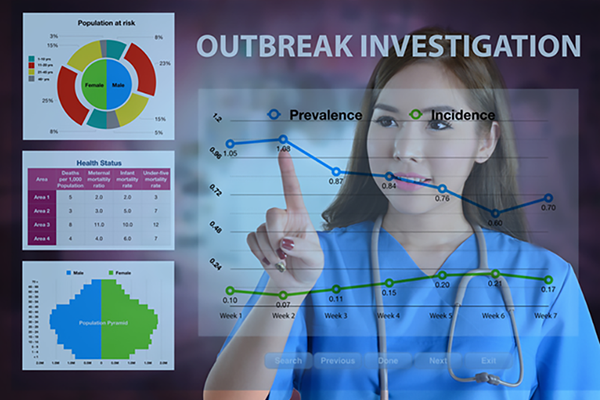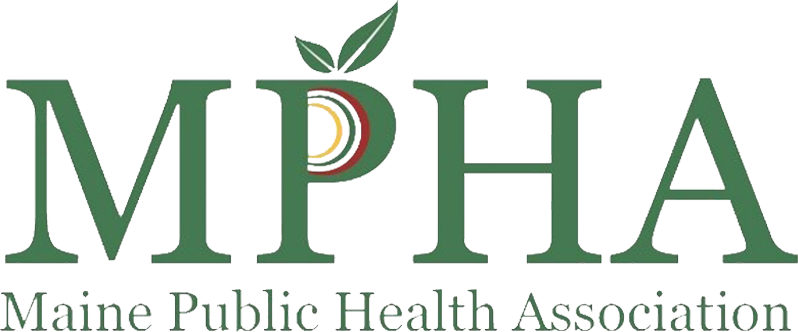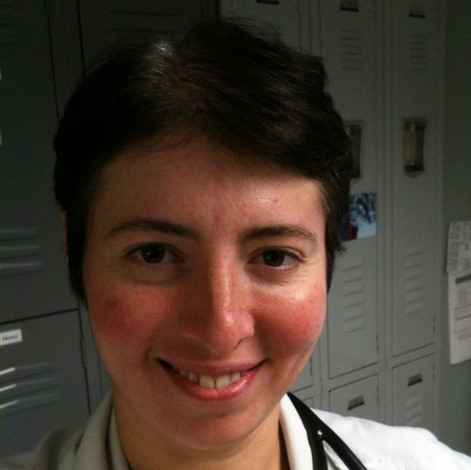
Detecting Outbreaks and Beginning Outbreak Investigation
What are the most common ways outbreaks are detected? Explore real world examples - Ebola and COVID-19 - for detecting disease outbreaks.



Register
Course Information
- Audience: Community health workers, public health professionals, nurses, people working with populations requiring chronic care
- Format: Webinar
- Date/Time: June 1, 2020
2:00 - 3:00 PM EST - Price: Free
- Length: 1 hour
- Credential(s) eligible for contact hours: Sponsored by New England Public Health Training Center (NEPHTC), a designated provider of continuing education contact hours (CECH) in health education by the National Commission for Health Education Credentialing, Inc. This program is designated for Certified Health Education Specialists (CHES) and/or Master Certified Health Education Specialists (MCHES) to receive up to 1 total Category I continuing education contact hours. Maximum advanced-level continuing education contact hours are 1. Provider ID: 1131137 Event ID: PM1131137_06082020.
If you are not seeking CHES/MCHES contact hours, if you complete the evaluation, you will receive a Certificate of Completion. The Certificate will include the length of the course. - Competencies: Community Partnership Skills
- Learning Level: Awareness
- Companion Trainings: None
- Supplemental materials:Session PowerPoint
- Pre-requisites None
About this Webinar
What are the most common ways outbreaks are detected and what are the hopes for improvements? We will look at different data sources and systems (including human relationships) that are used to detect outbreaks. The emphasis on emerging infectious
diseases and pandemic preparedness has led to changes in international health regulations at the highest levels, as well as requirements for disease detection at community levels. We will describe the ideal systems and some of the challenges;
initial steps in outbreak investigation and use examples from Ebola in West and Central Africa and COVID in 2020.
What you'll learn
At the end of the course, participants will be able to:
- Define an outbreak.
- Name 3 key sources of information from the community to assist outbreak detection.
- Describe Community Event Based surveillance (CEBS) and how it fits into more formal disease surveillance and the International Health Regulations.
- Given a scenario, decide if further investigation is warranted and when to investigate outbreaks.
- Describe the investigative team.
- Name the elements of a case definition.
Subject Matter Experts

Sharon McDonnell
BSN, MD, MPH
Nicoleta Toma
MD
Sharon received her BSN at the University of Florida and MD from the University of California, San Diego. After training in Family Medicine, she went to Pakistan/Afghanistan to work with NGOs and then WHO. She joined the US CDC as an EIS Officer and is board certified in Preventive Medicine and Public Health. She has worked in the state health departments in Florida and Vermont. After CDC She was on Faculty at Dartmouth Medical School and has continued to do work in International Disease Surveillance and Response and Epidemiology Training. She worked in Liberia for 2 years for the Ebola response with IRC and CSTE/CDC. Currently she teaches epidemiology with the University of New Hampshire and consults with the Leadership Preventive Medicine Residency Program at the Maine Medical Center. She helps co-found the Yarmouth Community Coronavirus Task Force in Yarmouth Maine.
Nicoleta Toma is board certified in Internal Medicine and worked as a hospitalist and primary care physician. In 2018 she enrolled in the Preventive Medicine fellowship at Maine Medical Center and as part of that program she completed her coursework for a master’s in public health degree at the University of New England. Through her MPH and Preventive Medicine Fellowship she has had the opportunity to increase her knowledge of descriptive and field epidemiology with projects in Population screening and COVID-19 response among vulnerable populations.
Registration
Select the Enroll Me button below to register for this webinar. If you have any trouble accessing the webinar, contact support@nephtc.org.
Acknowledgement: This project is/was supported by the Health Resources and Services Administration (HRSA) of the U.S. Department of Health and Human Services (HHS) under grant number UB6HP31685 “Regional Public Health Training Center Program.” This information or content and conclusions are those of the author and should not be construed as the official position or policy of, nor should any endorsements be inferred by HRSA, HHS or the U.S. Government.
* Yale School of Public Health, Office of Public Health Practice, a New England Public Health Training Center partner, is a designated provider of continuing education contact hours (CECH) in health education by the National Commission for Health Education Credentialing, Inc. All CHES credit inquiries are managed by YSPH

